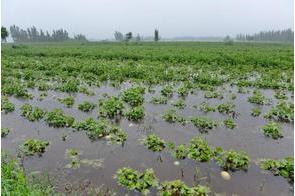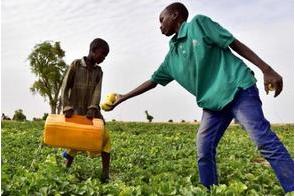Researchers advocate changes in small-scale farming methods to prevent biodiversity losses

Summary
The researchers say agricultural practices of small-scale farmers are environmentally unfriendly.
A study, led by a researcher at the Faculty of Science at Lund University in Sweden, has shown the adverse effects of small-scale farming on the rainforests of Southeast Asia. The researcher, Yann Clough, together with over 40 researchers from Germany, Indonesia, Switzerland and New Zealand discovered that agricultural practices of small-scale farmers are environmentally unfriendly.
The team interviewed 450 small-scale farmers in Indonesia to better understand why they chose to cultivate only oil palms or rubber trees and how this affects their economy. The researchers assessed how monocultures of palm oil and rubber trees affect forest growth, soil fertility and carbon storage, among other things.
Findings of the research – which were published in the online scientific journal, Nature Communications, last week – show that over the long term, biodiversity declines dramatically, the forest loses significance as a carbon source and the increased use of mineral fertiliser leads to additional leaching of nutrients such as nitrogen.
“For the great majority of small farmers, chopping down diverse forests and investing in a single species of tree – monoculture – is the simplest and quickest path out of poverty. Productivity increases, the financial risk drops and income rises”, says Yann Clough, who notes that short-term financial gain is the only benefit of monoculture.
Previous studies have focused mainly on large-scale palm oil production and how it exploits the forest and soil. The study and its findings contradict the traditional view that small-scale agriculture is environmentally friendly. According to the study, small farmers in Indonesia collectively cultivate a larger part of the country’s forests than that exploited by large farm landowners. Small farmers mainly embrace monoculture as an agricultural system, putting a great deal of strain on the environment and on biodiversity.
Although the study focused on Indonesia, the researchers say there are equivalent problems in many other parts of the world. As a solution, the study, therefore, advocates changes in the agricultural methods of small farmers. However, these would require financial support in order for the farmers to change their agricultural practices, according to the researchers.
“Since the small farmers earn more with monoculture, sustainability aspects and the effects on nature currently are almost entirely unheeded. Changing the production methods of small farmers requires financial incentives along with political will; otherwise there is a risk that rich and productive agricultural land will have disappeared altogether in 20 years,” said Clough.
Related
-
The challenges and management of flooding in Africa’s agriculture
Knowing what to do before, during and after a flood can enable farmers to make better decisions.
-
Fish production in Cameroon gets boost from IFAD grant
IFAD said the project will help to develop partnerships among entrepreneurs in the fishing value-chain.
-
MasterCard, MSU launch $13mn fund to boost youth employment in Nigeria, Tanzania
The initiative will encourage youths to participate in horticulture, aquaculture, poultry, cassava, oilseed sectors.









